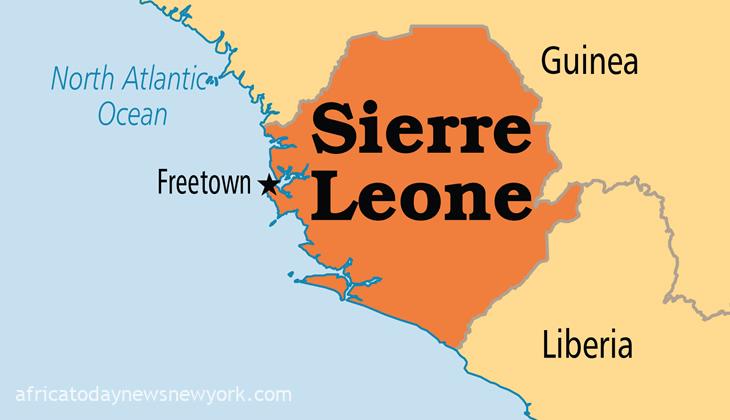Authorities in Sierra Leone have burned narcotic drugs and chemicals worth $200,000 which were being used to manufacture the synthetic drug kush, two weeks after drug abuse was declared a national emergency.
Several law enforcement agencies turned up at the Sierra Leone Police Training Academy in the capital, Freetown, as a small crowd gathered around the bellowing fire and rising smoke.
Kush which is made from a mixture of chemical substances with similar effects to cannabis — has been prevalent in the West African country for several years.
“We are destroying confiscated narcotics, tramadol and chemicals used for the manufacturing of kush… to avoid the likelihood of (them) going back to the community,” said Mohamed Alieu, head of a police transnational organised crime unit, during a short ceremony to mark the burning of the drugs.
Read Also: Sierra Leone Declares Emergency Over Drug Made From Bones
They also burned cannabis and cocaine, according to the National Drug Law Enforcement Agency.
“We are waging a war against kush to save the youths of Sierra Leone from dying of drug addiction,” said the agency’s Executive Director Andrew Jaia KaiKai.
“Our country is in a state of drug confusion and we must eradicate it to protect the future generation,” said Joseph Lahai, director of the police’s crime services.
The Sierra Leone President Julius Maada Bio said earlier this month that drug abuse in the country was a “national emergency”.
President Julius Maada Bio had declared a national emergency over rampant drug abuse in the country which is fast becoming a national epidemic.
Africa Today News, New York reports that Kush, a psychoactive blend of addictive substances, has been prevalent in the country for years.
President Bio called the drug a “death trap” and said it posed an “existential crisis”.
One of the ingredients of the drug is derived from human bones, leading to increased security measures in cemeteries to prevent addicts from digging up skeletons.

